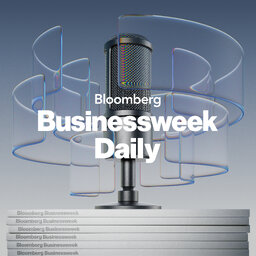Cohesity CEO on Defending Against Hacks Around the World
Sanjay Poonen, CEO at Cohesity, discusses how geopolitical issues raise cybersecurity concerns.
Hosts: Carol Massar and Tim Stenovec. Producer: Paul Brennan.
In 1 playlist(s)
Bloomberg Businessweek
Listen for reporting from the magazine that helps global leaders stay ahead. Hosts Carol Massar an…Social links
Follow podcast
Recent clips

Bloomberg Businessweek Weekend - February 20th, 2026
1:15:10

Trump’s Global Tariffs Struck Down by US Supreme Court
27:11

Trump Has Called Bluff on the Era of Good Corporate Citizen
11:22
 Bloomberg Businessweek
Bloomberg Businessweek